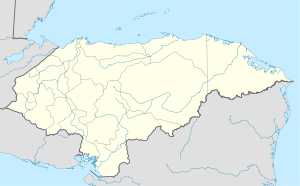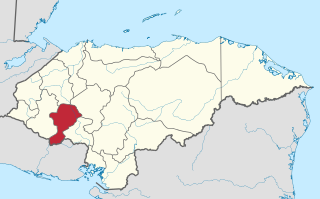
Intibucá is one of the 18 departments in the Republic of Honduras. Intibucá covers a total surface area of 1,186.1 square miles (3,072 km2). Its capital is the city of La Esperanza, in the municipality of La Esperanza.

Lempira is one of the 18 departments in Honduras. located in the western part of the country, it is bordered by the departments of Ocotepeque and Copán to the west, Intibucá to the east, and Santa Bárbara to the north. To its south lies the El Salvador–Honduras border. The departmental capital is Gracias.
La Esperanza is the capital city and a municipality of the same name of the department of Intibucá, Honduras. La Esperanza is famous for having the coolest climate in Honduras. It is considered the heart of the Ruta Lenca, a region of Lenca ethnic influence that spans Honduras from Santa Rosa de Copan to Choluteca. Sites on the Lenca Trail have been designated by the government and United Nations development in order to encourage more cultural tourism, and help create new markets for the traditional crafts, such as pottery, practiced by the Lenca, in order to preserve their culture.
Concepción is a municipality in the Honduran department of Intibucá.
San Miguel Guancapla is a municipality in the Honduran department of Intibucá.

Candelaria is a municipality in the Honduran department of Lempira.

Erandique is a municipality in the Lempira Department of Honduras.

Gualcince is a municipality in the Honduran department of Lempira.

La Iguala is a municipality in the Honduran department of Lempira.

Las Flores is a municipality in the Honduran department of Lempira.
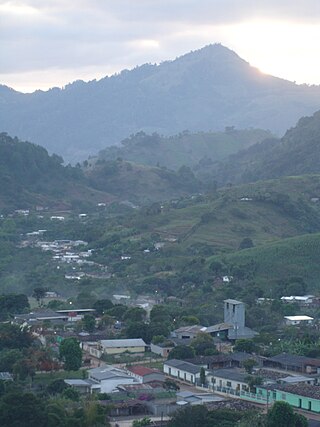
La Unión is a municipality in the Honduran department of Lempira.
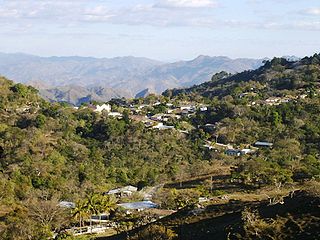
Piraera is one of the municipalities of Lempira department in Honduras. It is located on one of the branches of "Congolón" mountain, it is 105 km away from the city of Gracias.

San Andrés is a municipality in the Honduran department of Lempira.

San Juan Guarita is a municipality in the Honduran department of Lempira.
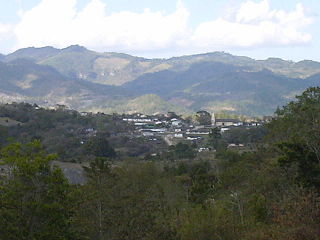
Santa Cruz is a municipality in the Honduran department of Lempira.

Tomalá is a municipality in the Honduran department of Lempira.

Belén is a municipality in the Honduran department of Lempira. The latitude is 15.75 north, the longitude is 87.93 west, and the altitude is 313 meters.
Honducor is the mail service of Honduras.
Honduras has rich folk traditions that derive from the fusion of four different cultural groups: indigenous, European, African and Creole. Each department or region, municipality, village and even hamlet contributes its own traditions including costumes, music, beliefs, stories, and all the elements that derive from and are transformed by peoples in a population. In sum, these define Honduran Folklore as expressed by crafts, tales, legends, music and dances.
Intibucá is a city, with a population of 25,570, and a municipality in the department of Intibucá, Honduras. The urban area of Intibucá is an important transit and commercial site in the South-West region of Honduras. Located 1,850 meters above sea level, Intibucá has a cool and often foggy climate, hence the nickname "La ciudad del manto blanco". Potato production, celebrated by the annual Festival de la Papa, is the principal basis of the economy for the municipality.

